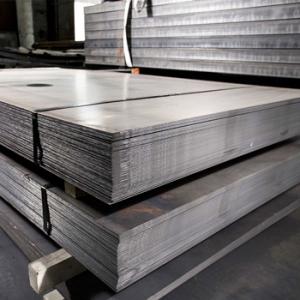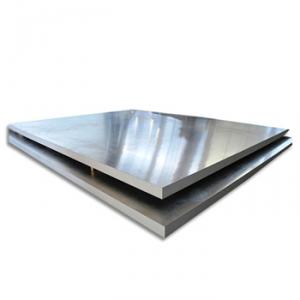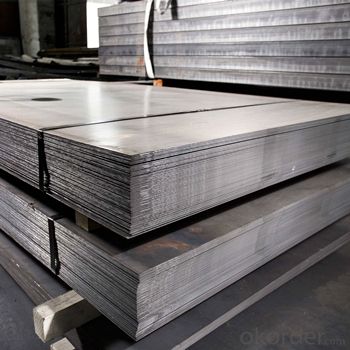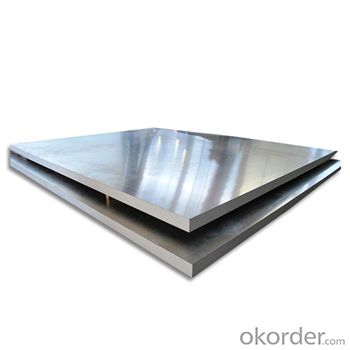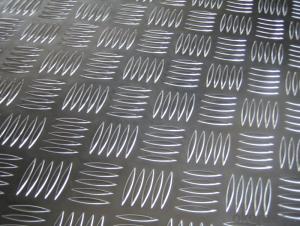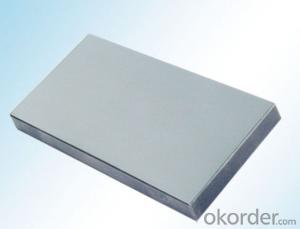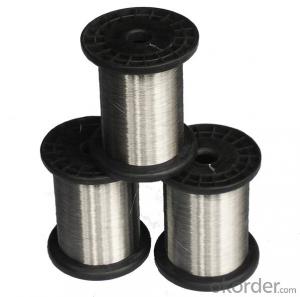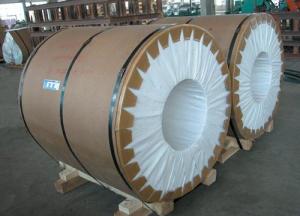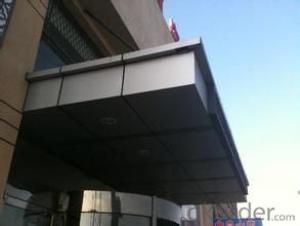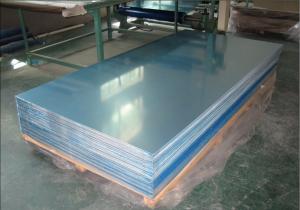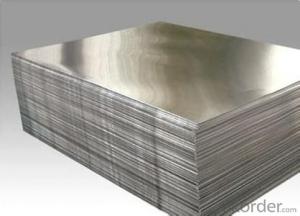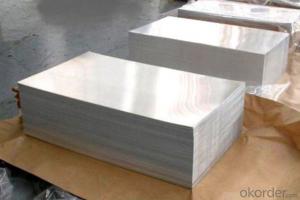Aluminum Sheets for Sale Ireland - Aluminum Sheet and Mill Finished Aluminum Sheet
- Loading Port:
- Shanghai
- Payment Terms:
- TT or LC
- Min Order Qty:
- 6 m.t.
- Supply Capability:
- 3000 m.t./month
OKorder Service Pledge
OKorder Financial Service
You Might Also Like
1.Description
Aluminium atoms are arranged in a face-centered cubic (fcc) structure. Aluminium has a stacking-fault energy of approximately 200 mJ/m2.
Aluminium is a good thermal and electrical conductor, having 59% the conductivity of copper, both thermal and electrical, while having only 30% of copper's density. Aluminium is capable of being a superconductor, with a superconducting critical temperature of 1.2 Kelvin and a critical magnetic field of about 100 gauss (10 milliteslas).
2.Chemical
Corrosion resistance can be excellent due to a thin surface layer of aluminium oxide that forms when the metal is exposed to air, effectively preventing further oxidation.The strongest aluminium alloys are less corrosion resistant due to galvanic reactions with alloyed copper.This corrosion resistance is also often greatly reduced by aqueous salts, particularly in the presence of dissimilar metals.
In highly acidic solutions aluminium reacts with water to form hydrogen, and in highly alkaline ones to form aluminates— protective passivation under these conditions is negligible. Also, chlorides such as common sodium chloride are well-known sources of corrosion of aluminium and are among the chief reasons that household plumbing is never made from this metal.
However, owing to its resistance to corrosion generally, aluminium is one of the few metals that retain silvery reflectance in finely powdered form, making it an important component of silver-colored paints. Aluminium mirror finish has the highest reflectance of any metal in the 200–400 nm (UV) and the 3,000–10,000 nm (far IR) regions; in the 400–700 nm visible range it is slightly outperformed by tin and silver and in the 700–3000 (near IR) by silver, gold, and copper.
3. Specification
ALLOY: AA1*** (AA1050,AA1060,AA1070,AA1100 etc.)
AA3*** (AA3003,AA3004,AA3005,AA3105 etc.)
AA5*** (AA5052,AA5083,AA5754 etc)
AA8*** (AA8011,AA8006 etc)
TEMPER: H14,H16,H18,H22,H24,H26,H32,O/F
THICKNESS: 0.2mm-100mm
WIDTH: 30mm-1700mm
STANDARD: GB/T 3880-2006
Special specification is available on customer's requirement
4.Picture
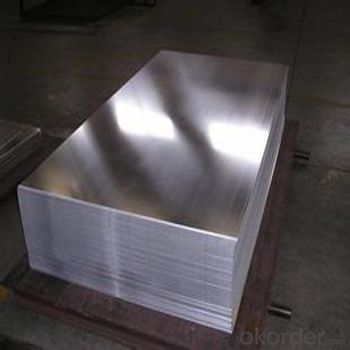
- Q: Can aluminum sheets be used in food packaging?
- Yes, aluminum sheets can be and are commonly used in food packaging. Aluminum is a popular choice for food packaging due to its excellent barrier properties, which protect the food from light, oxygen, moisture, and other external factors that can spoil or contaminate it. Aluminum sheets are lightweight, durable, and resistant to corrosion, making them suitable for various types of food packaging, such as foil wraps, containers, trays, and pouches. Additionally, aluminum is a recyclable material, making it an environmentally friendly choice for food packaging.
- Q: Can aluminum sheets be used for food processing conveyors?
- Indeed, food processing conveyors can make use of aluminum sheets. The numerous desirable properties of aluminum render it a favored option for food processing equipment. Its lightweight nature, resistance to corrosion, and exceptional thermal conductivity make aluminum sheets extraordinarily well-suited for the task of facilitating the transportation of food products within the demanding environment of food production. Furthermore, aluminum's ease of cleaning and maintenance further bolsters its appeal as a hygienic choice for food processing applications.
- Q: This is kind of odd, but if a volcano erupted and the lava dripped into an aluminum can, would the can melt? Would the lava harden and cool in it?
- Temperature of lava - 700 degrees Celsius. Melting point of aluminum - 660 degrees Celsius. I'll let you figure out if the can would melt...
- Q: What are the different thicknesses available for aluminum sheet?
- Aluminum sheets are available in a variety of thicknesses, ranging from extremely thin to thick. The thickness of aluminum sheets is measured in gauge or millimeters (mm), with each gauge representing a specific thickness. The most common gauges for aluminum sheets include 22, 24, 26, 28, 30, and 32. These gauges correspond to thicknesses ranging from 0.0254 mm to 0.635 mm. Additionally, aluminum sheets can be found in thicker gauges, such as 16 gauge (1.29 mm) or even thicker for specialized applications. The choice of thickness depends on the intended use of the aluminum sheet, with thinner sheets often being used for lightweight applications like electronics or packaging, while thicker sheets are preferred for structural or industrial purposes.
- Q: Can aluminum sheets be laminated?
- Yes, aluminum sheets can be laminated. Lamination involves bonding a layer of material, such as plastic or paper, to the surface of the aluminum sheet to provide protection, enhance aesthetics, or improve functionality.
- Q: What are the advantages of using aluminum sheets in the transportation industry?
- The utilization of aluminum sheets in the transportation sector offers numerous benefits. To begin with, aluminum, being a lightweight material, proves to be advantageous in vehicles by reducing fuel consumption and increasing overall efficiency. This attribute is particularly significant in industries like aviation and automotive, where weight reduction plays a crucial role in enhancing performance. Furthermore, aluminum exhibits exceptional resistance to corrosion, which is pivotal in the transportation field where vehicles are exposed to diverse environmental conditions such as rain, snow, and road salt. The implementation of aluminum sheets helps prolong the lifespan of vehicles and diminishes the maintenance costs linked to corrosion-related problems. Moreover, aluminum is highly recyclable, making it a more sustainable option when compared to other materials. The transportation industry is increasingly prioritizing sustainability, and the utilization of aluminum sheets aligns with these objectives. Recycling aluminum consumes significantly less energy than producing it from raw materials, leading to reduced carbon emissions and energy consumption. Additionally, aluminum offers excellent formability and versatility, enabling it to be easily shaped into various forms and sizes. This characteristic allows manufacturers to design structures that are lightweight yet robust. This design flexibility facilitates the production of more aerodynamic vehicles, thereby improving fuel efficiency. Lastly, aluminum sheets possess a high strength-to-weight ratio, meaning they provide the necessary strength while remaining lightweight. This property makes aluminum an ideal material for applications that require strength and durability, such as vehicle bodies, chassis, and structural components. In conclusion, the utilization of aluminum sheets in the transportation industry provides advantages such as weight reduction, corrosion resistance, sustainability, formability, versatility, and a high strength-to-weight ratio. These benefits contribute to improved performance, fuel efficiency, and durability of vehicles, making aluminum an excellent choice for various transportation applications.
- Q: I'm thinking of starting raised beds for a vegetable garden. I'm thinking about a shallow aluminum stock tank, about 12 in. deep x 4 ft. long. Having limited sunlight available, these could be moved around the yard and tended to easily. Any ideas? Aluminum with soil? Any effects? Holes will be drilled in the bottom for drainage. Thanks!
- Aluminum has good corrosion resistance, it will work fine. With a big tub like that you can grow a lot of delicious veggies. Make sure you provide enough drainage for the size of the tub. Good luck and happy gardening!
- Q: why is copper sheet but not aluminum sheet that becomes the negative pole after putting copper sheet and aluminum sheet connected with wire into concentrated nitric acid?
- it may be that aluminum won't react with concentrated nitric acid.
- Q: Are 101 aluminum sheets resistant to UV radiation?
- Yes, 101 aluminum sheets are generally resistant to UV radiation.
- Q: Can aluminum sheets be painted or coated?
- Yes, aluminum sheets can be painted or coated. Aluminum is a versatile material that can be easily painted or coated to enhance its appearance or improve its performance. The key to achieving a successful paint or coating on aluminum is proper surface preparation and the use of suitable primers or coatings designed specifically for use on aluminum. The surface of the aluminum sheet needs to be clean, free from any oils, dirt, or oxidation, and may require sanding or etching to promote adhesion. Once the surface is prepared, a wide range of paints or coatings can be applied, including liquid paints, powder coatings, and anodizing. These finishes can provide various benefits such as increased corrosion resistance, improved durability, enhanced aesthetics, and even specialized properties like heat resistance or anti-microbial properties. It is important to consult with a professional or follow the manufacturer's guidelines to ensure the proper application and longevity of the paint or coating on aluminum sheets.
Send your message to us
Aluminum Sheets for Sale Ireland - Aluminum Sheet and Mill Finished Aluminum Sheet
- Loading Port:
- Shanghai
- Payment Terms:
- TT or LC
- Min Order Qty:
- 6 m.t.
- Supply Capability:
- 3000 m.t./month
OKorder Service Pledge
OKorder Financial Service
Similar products
Hot products
Hot Searches
Related keywords
